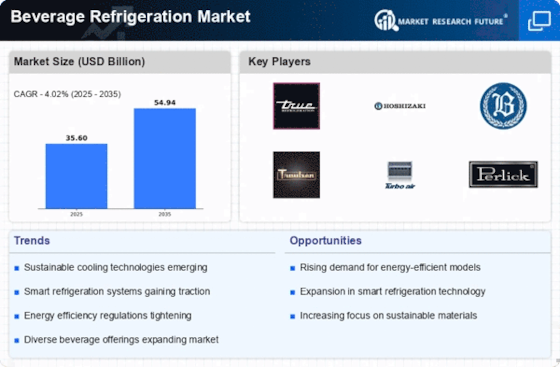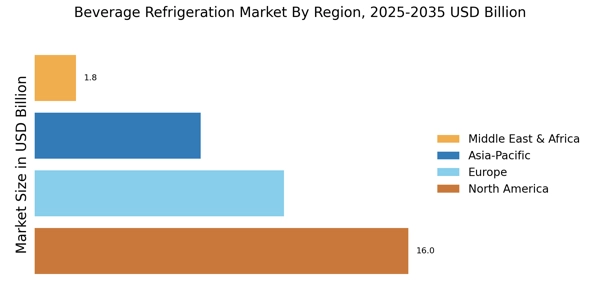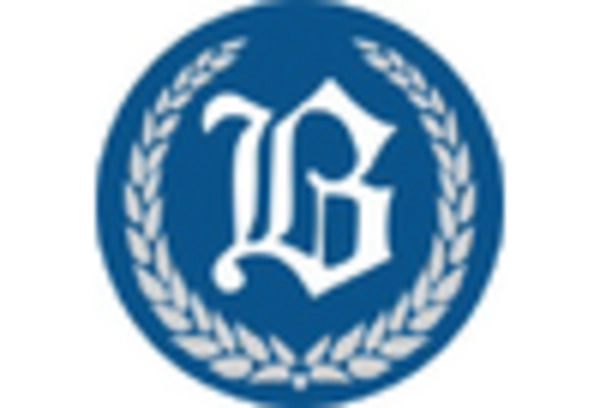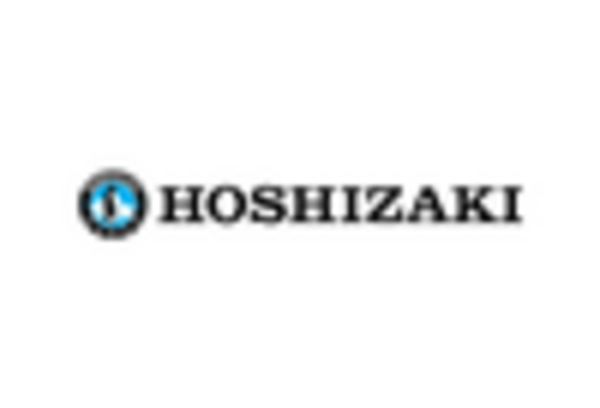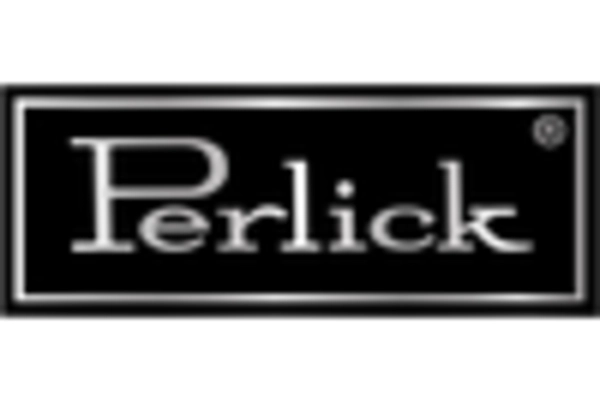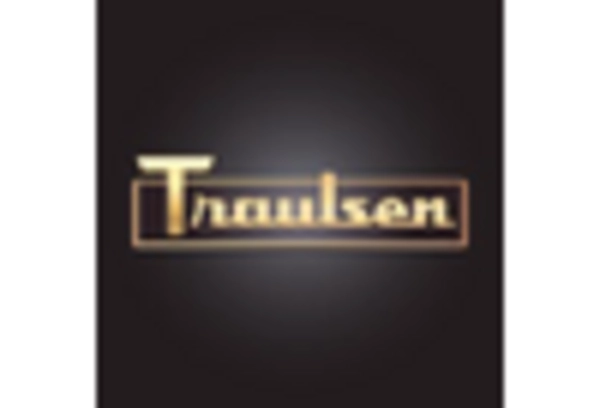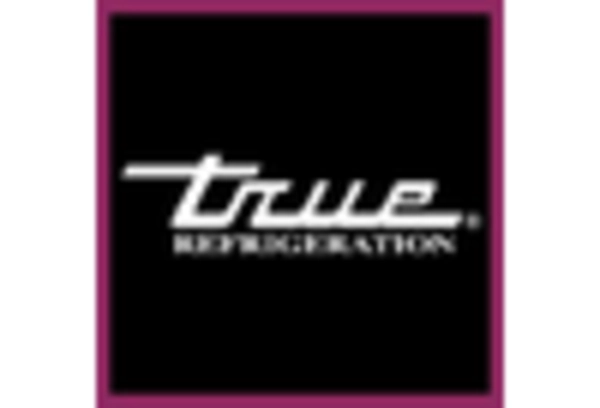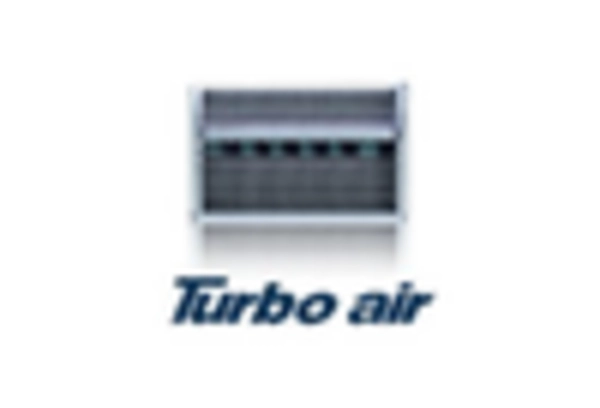Health and Wellness Trends
The beverage refrigeration Market is increasingly influenced by health and wellness trends, as consumers become more health-conscious and seek healthier beverage options. This shift has led to a rise in the demand for beverages such as low-calorie drinks, functional beverages, and organic options. As a result, manufacturers are focusing on creating refrigeration solutions that not only preserve the quality of these products but also enhance their visibility in retail environments. The market for health-oriented beverages has been growing at a rate of approximately 6% annually, indicating a robust consumer interest. Consequently, the Beverage Refrigeration Market must adapt to these trends by providing refrigeration systems that cater to the specific needs of health-focused products, ensuring they are stored and displayed effectively.
Growth of the E-commerce Sector
The Beverage Refrigeration Market is witnessing a surge in growth due to the expansion of the e-commerce sector. With the increasing popularity of online shopping, particularly for food and beverage products, there is a heightened need for effective refrigeration solutions to ensure product integrity during transit. Data indicates that e-commerce sales in the beverage sector have increased by over 20% in recent years, prompting retailers to invest in specialized refrigeration systems that cater to online orders. This trend necessitates the development of packaging and refrigeration technologies that maintain optimal temperatures throughout the supply chain. As e-commerce continues to flourish, the Beverage Refrigeration Market is likely to benefit from the demand for innovative refrigeration solutions that meet the unique challenges of online distribution.
Regulatory Compliance and Standards
Regulatory compliance and standards are becoming increasingly critical in the Beverage Refrigeration Market. Governments and regulatory bodies are implementing stringent guidelines regarding food safety, energy efficiency, and environmental impact. These regulations necessitate that manufacturers and retailers invest in refrigeration systems that meet specific criteria. For instance, energy efficiency standards may require refrigeration units to consume less energy, while food safety regulations mandate proper temperature control to prevent spoilage. As a result, companies are compelled to upgrade their refrigeration systems to comply with these regulations, which can drive innovation and investment in the Beverage Refrigeration Market. The need for compliance not only ensures consumer safety but also promotes sustainability, as businesses seek to minimize their environmental footprint.
Rising Demand for Convenience Beverages
The Beverage Refrigeration Market is experiencing a notable increase in the demand for convenience beverages, such as ready-to-drink (RTD) options. This trend is driven by changing consumer lifestyles that favor on-the-go consumption. According to recent data, the RTD beverage segment has seen a growth rate of approximately 5% annually, indicating a shift in consumer preferences. As a result, manufacturers are investing in advanced refrigeration solutions to ensure optimal storage and display of these products. The need for efficient beverage refrigeration systems is further underscored by the competitive landscape, where brands strive to enhance product visibility and accessibility. This rising demand for convenience beverages is likely to propel the Beverage Refrigeration Market forward, as retailers and manufacturers seek to meet consumer expectations for freshness and quality.
Technological Advancements in Refrigeration
Technological advancements are playing a pivotal role in shaping the Beverage Refrigeration Market. Innovations such as energy-efficient compressors, smart temperature controls, and IoT-enabled systems are becoming increasingly prevalent. These technologies not only enhance the performance of refrigeration units but also contribute to energy savings, which is a growing concern among consumers and businesses alike. For instance, energy-efficient models can reduce energy consumption by up to 30%, making them an attractive option for retailers. Furthermore, the integration of smart technology allows for real-time monitoring and management of refrigeration systems, ensuring optimal performance and reducing operational costs. As these advancements continue to evolve, they are expected to drive growth in the Beverage Refrigeration Market, as stakeholders seek to adopt more sustainable and efficient solutions.


